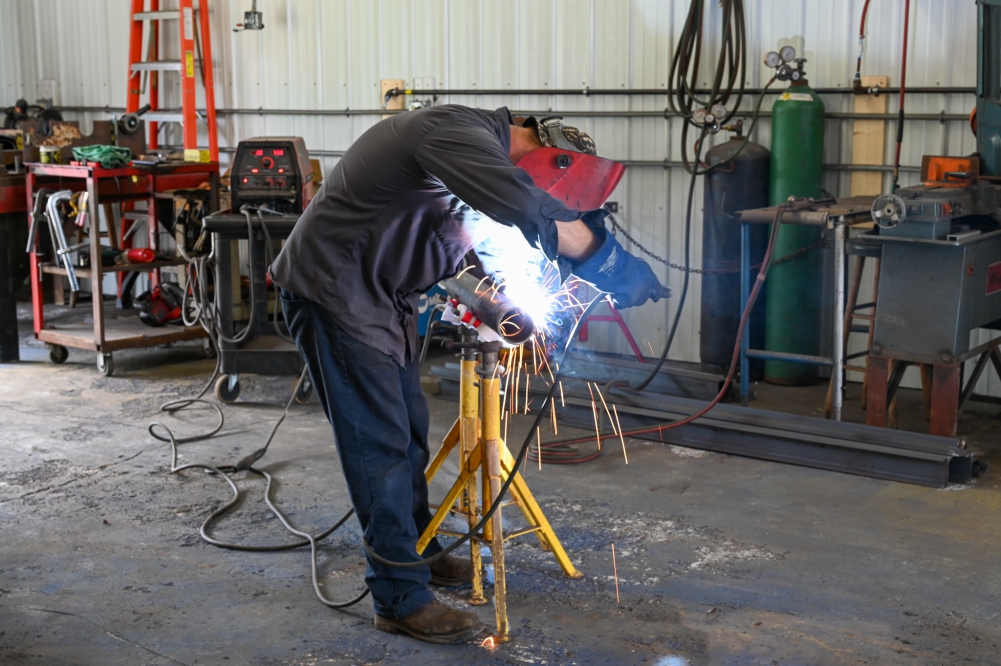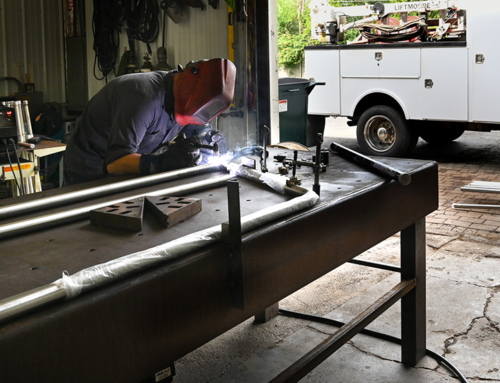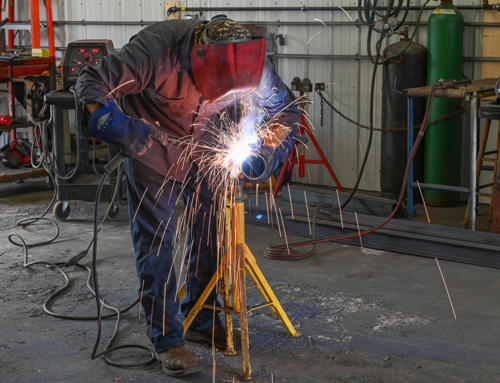Most people have probably heard of welding and know it has something to do with working with metal. However, if you’ve ever wondered what welding is or what welders do, we have answers! Welders contribute vital work to a variety of industries and help build everything from household appliances to space vehicles.
What is Welding?
In short, welding is simply joining metals and thermoplastics together permanently, often using filler metal. It is also the only way we know of to bring two pieces of metal or together to serve as a single piece. Some welding jobs are done in a dedicated shop, but welding can be done virtually anywhere, including underground, underwater, and even in space.
There are a number of welding methods that use a variety of energy sources. Some examples include chemical welding using a gas flame, electric arc welding, and laser welding. While robot welders contribute to many industrial processes, human welders are still in great demand. It’s a risky job, and many precautions are necessary to avoid burns, damage to the welder’s vision, inhaling poisonous materials, and electric shock.
What Do Welders Do?
Welders contribute to nearly every industry, including construction, manufacturing, and energy extraction. A welder’s job comes with a variety of duties. However, the specifics will depend on what industry the worker is in, what they are producing or repairing, and what their level of experience is.
Metal parts that need joining are not always in convenient locations. Welders must be able to work in flat, vertical, and even overhead positions. Welders must also be able to read and understand engineering drawings and blueprints while also calculating dimensions and parts needed. Before a project can begin, the pieces need to be positioned correctly and secured.
The process of welding includes selecting the correct methods and equipment for the project, executing the welds properly, and then cleaning any excess weld or spatters. Many projects require additional finishing, such as filling holes or hammering bends, and applying protective coatings. Then, equipment and machinery must be cleaned and maintained according to recommended protocols from the manufacturers.
Types of Welders
Welding techniques are relatively similar from industry to industry. Still, the welding materials and work environment often call for specialized expertise in the execution of the project. For that reason, there are several career paths for those in the field of welding. For example, construction welders build bridges, buildings, and other civil engineering projects. Manufacturing welders work in structural and agricultural manufacturing, mining, or vehicle manufacturing.
Structural steelworkers, also known as ironworkers, fabricate the structural framework for large and small buildings, and also work in mining, shipbuilding, oil and gas, and aerospace. Sheet metal workers cut, prepare, and install prepared products at construction sites and are often maintenance workers. Boilermakers build and install large vessels and work in industries such as water treatment, process and storage, and refineries.
This list may seem long, but there are even more areas for welders to specialize in. Rig welders, pipefitters, motorsports, shipyards, and underwater welders are just a few, and none of these include any of the specialized areas used by the military.
Beyond Industry
Along with the various industries that commercial and industrial welders work in, there are also welders who specialize in residential applications. These professionals perform tasks such as joining pipes that carry water and gas, often in conjunction with plumbers and pipefitters. Residential welders tend to work on a variety of projects throughout the year.
Welders can also be artists and make everything from decorative, functional pieces to beautiful sculptures. Functional art pieces can include things like scrolling railings, gates, and staircases, along with smaller pieces such as racks and hangers.
Other pieces may be purely for aesthetics. Ornamental iron pieces such as faux balconies and window boxes, fence panels, and other fixtures are some examples. Or, welders can construct stunning sculptures that vary as widely as the imaginations that created them. From recycling and upcycling to adorning existing works with metal, there’s little that a skilled welder cannot create.
Experienced Welders & Fabricators
At Grounded Industrial, our full-service shop is ready to handle your fabrication and repair needs for heavy industrial, commercial, and residential applications. We can tackle projects of all sizes, from a fast fix to major construction. Plus, we can travel to your location throughout the greater Chicagoland and Northwest Indiana area.






